Detailed Content Analysis German Security Police and SS Records, 1939–1942 (Irving File 36)
Scope and Content:
This file contains a broad compilation of administrative, instructional, and operational documents generated by the RSHA and related SS offices between 1938 and 1942. Contents include:
- Student Training & Indoctrination: Admission rules and lecture plans for the Langemarck-Studium, an SS-sponsored ideological education programme.
- Administrative Directives: Circulars on organisation, recruitment, financial support, and personnel procedures.
- Einsatzgruppen Directives: Operational orders and guidance for Einsatzgruppen and Einsatzkommandos, including instructions for “Barbarossa” (1941) and handling of POWs and civilians.
- Security Policing Instructions: Procedures for surveillance, reporting, counter-espionage, and propaganda monitoring.
- Personnel Records: Contact directories (names, offices, telephone numbers) for SD/RSHA staff.
- Equipment and Logistics: Detailed supply lists for Einsatzkommando units (weapons, uniforms, provisions, stationery).
- Reporting Templates: Forms, reporting structures, and guidelines for political, security, and military intelligence.
- Miscellaneous Correspondence: Internal memos, communications between SS offices, and explanatory notes.
Arrangement:
Appears to be an artificial compilation, ordered broadly by topic and date, not original order. Sections follow:
- Student training (Langemarck-Studium)
- SS/SD equipment directives
- RSHA lecture timetables and curricula
- Directives on occupied territories (Poland, USSR, France, etc.)
- Einsatzgruppen “Barbarossa” guidelines
- Personnel directories
- Forms and reporting instructions
Disclaimer
This document, titled German Security Police and SS Records, 1939–1942, contains historical records created by agencies of the German Third Reich, including the SS, Sicherheitsdienst (SD), and Reichssicherheitshauptamt (RSHA).
The content reflects the language, ideology, and administrative practices of the Nazi regime. It includes references to policies and actions connected with crimes against humanity, including persecution and mass violence.
The inclusion of this material in digital or archival form is for historical, research, and educational purposes only. The views, terminology, and ideology expressed in the documents are those of their creators and do not represent the views of the archivist, publisher, or hosting institution.
Researchers are advised that the documents may contain offensive, discriminatory, or disturbing material.
Condition Note
Overall Legibility:
-
Readable but inconsistent. Most pages are legible with effort, but several suffer from faint type, blurred text, or heavy carbon smudging.
-
OCR text extraction is unreliable: garbled characters, misplaced line breaks, and missed words. This limits automated searching and requires manual verification against the scans.
Physical Artefacts Visible:
-
Fading & Bleed-through: Common in carbon duplicates; text sometimes faint on one side and ghosted from the reverse.
-
Stamping & Markings: Some pages have visible stamps or handwritten notations, adding authenticity but sometimes obscuring lines of type.
-
Paper Texture: The scan preserves creases, uneven edges, and signs of aging, though without physical damage (tears or holes).
Condition of Sections:
-
Early pages (1938–39, Langemarck-Studium): Generally clear typewritten text, minor fading.
-
Middle sections (Einsatzgruppen directives, c. 1941): More variable; some pages faint and blurred.
-
Later sections (directories, forms): Clearer again, but OCR particularly struggles with tables and formatting.
Preservation Implications:
-
Authenticity indicators (fading, smudging, ghosting) confirm archival integrity, but reduce readability.
-
User requirement: Researchers need German proficiency and patience with faint text; for wider accessibility, selective transcription and translation would be necessary.
4 Page Sample-German Security Police and SS Records, 1939–1942 (Irving File 36)

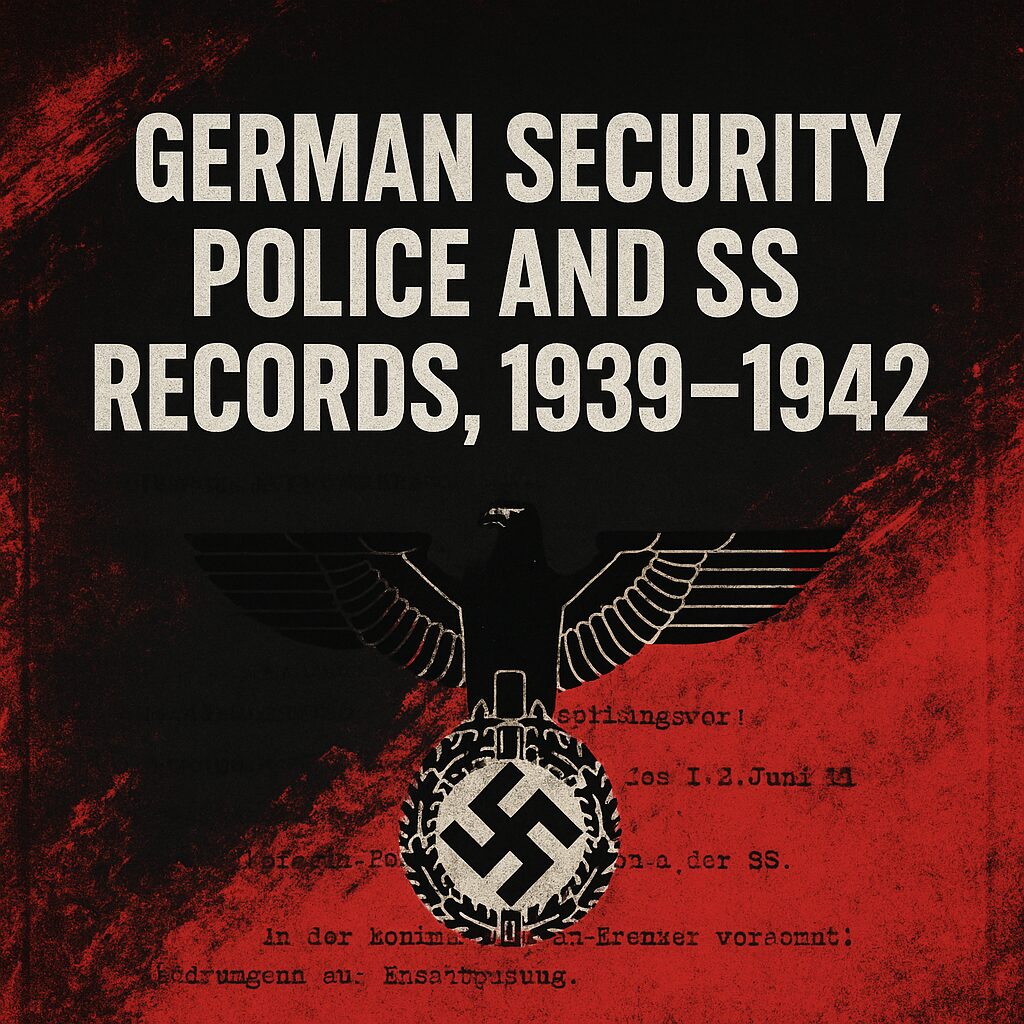
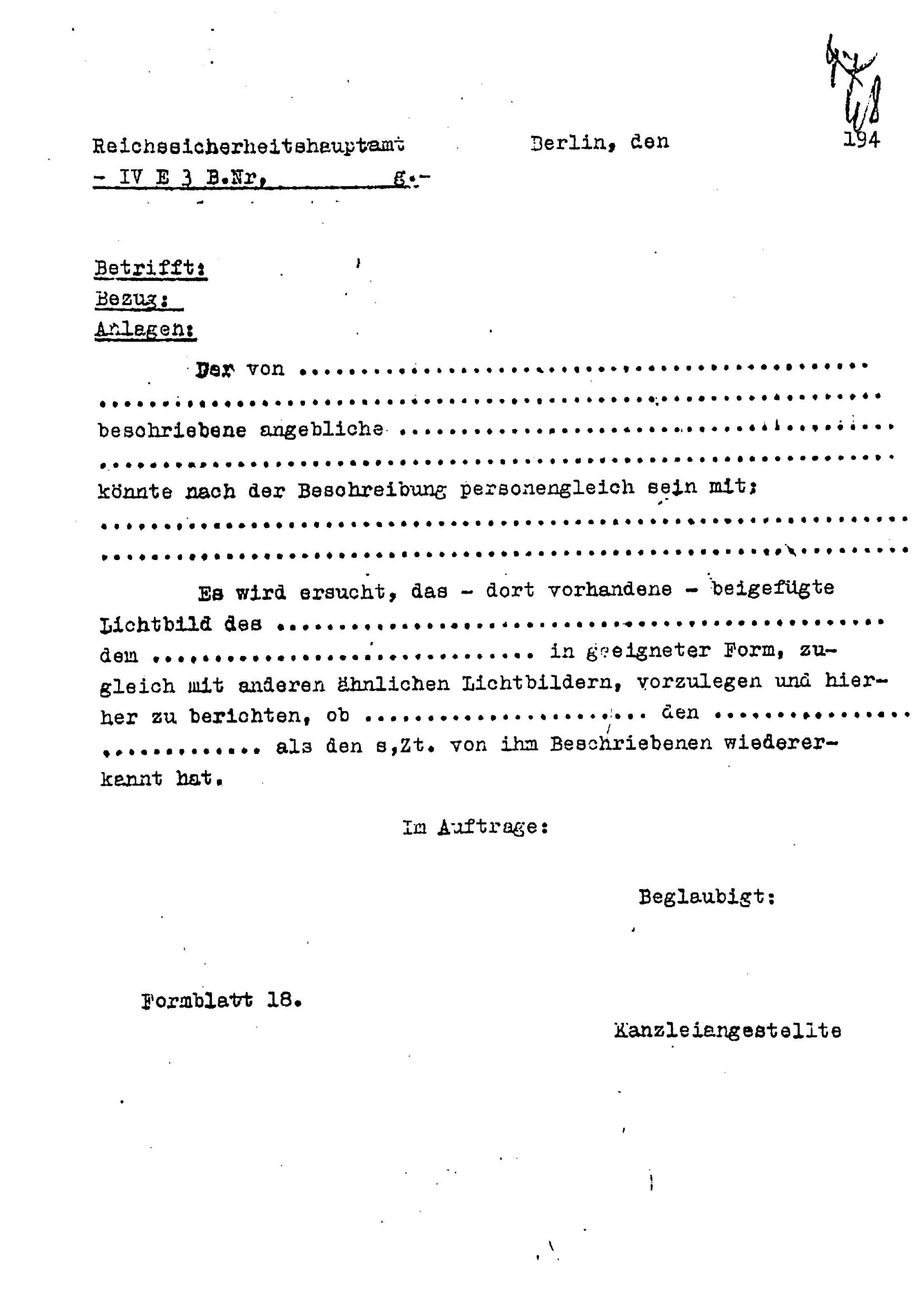
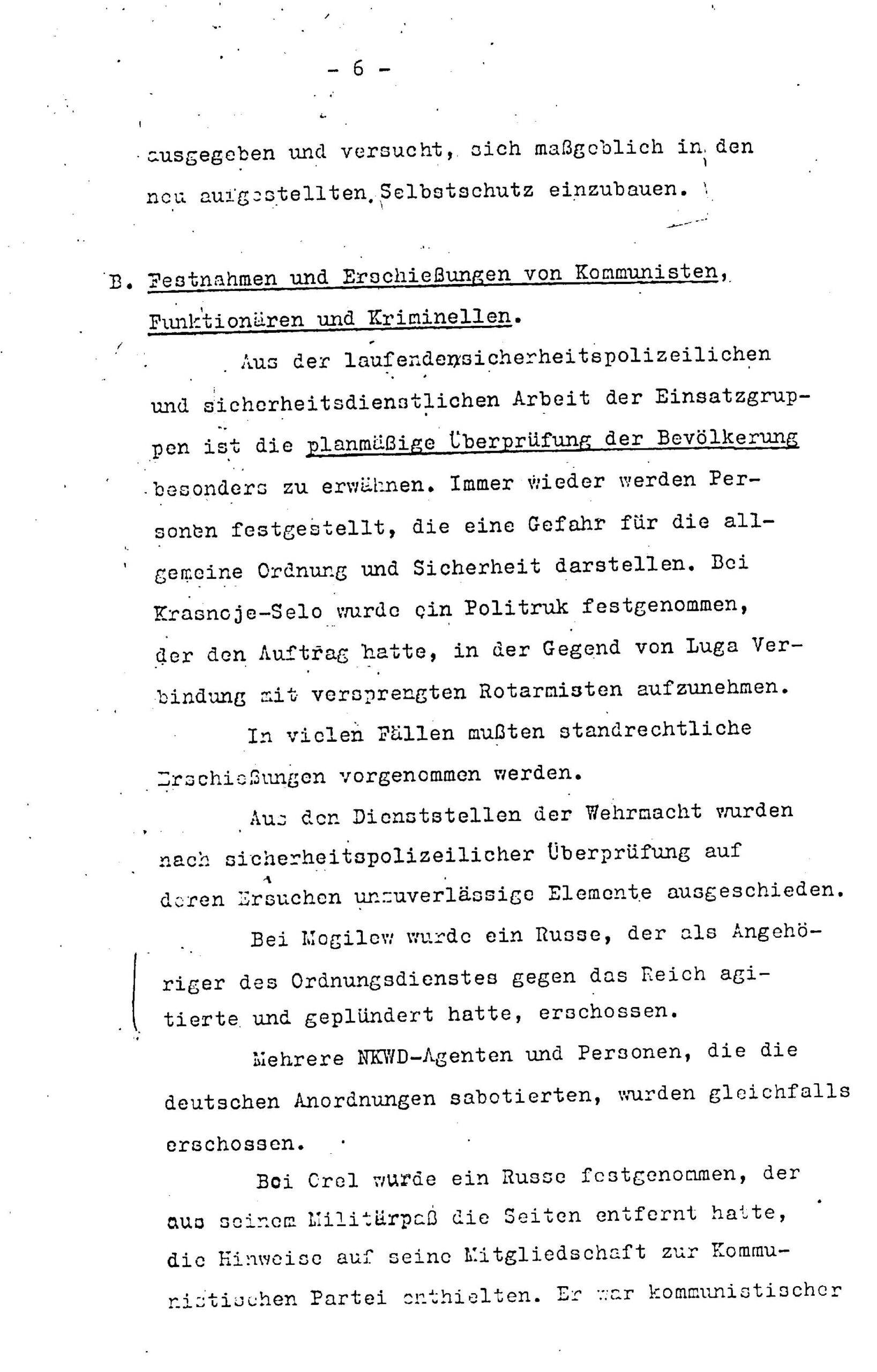
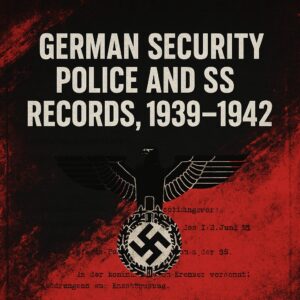
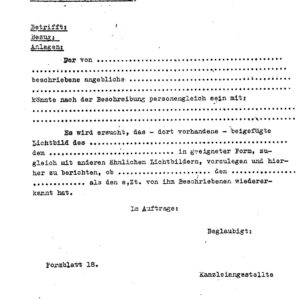
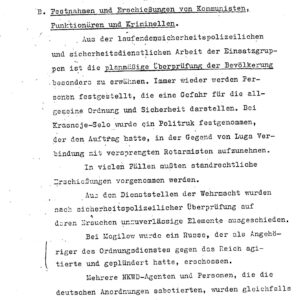


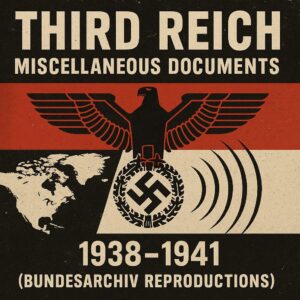
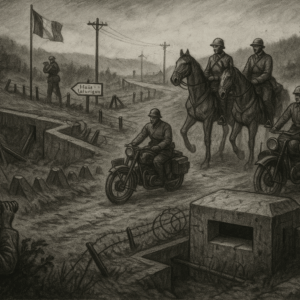
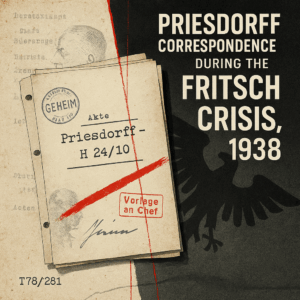
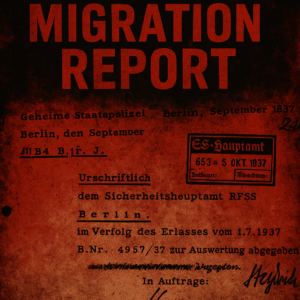
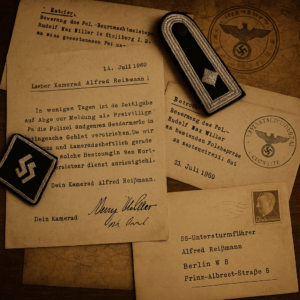
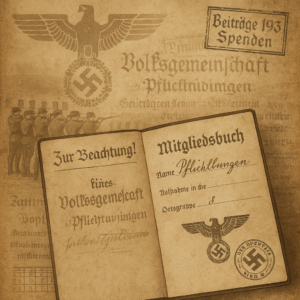
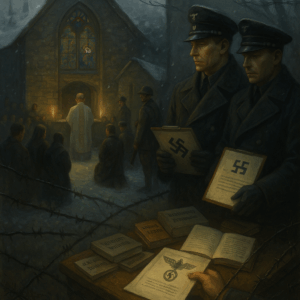
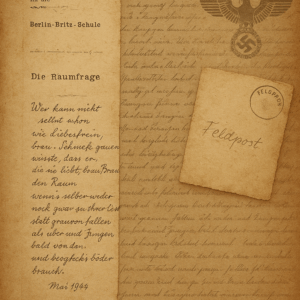
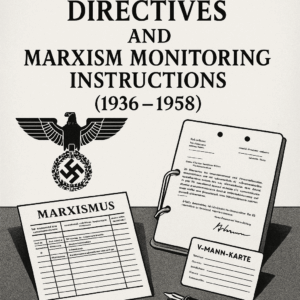
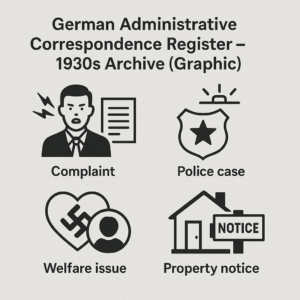
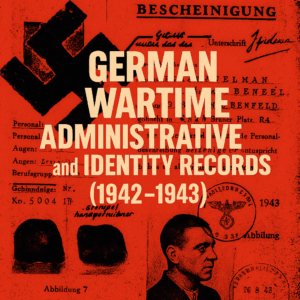
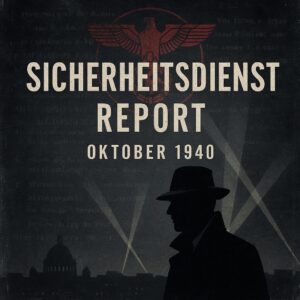
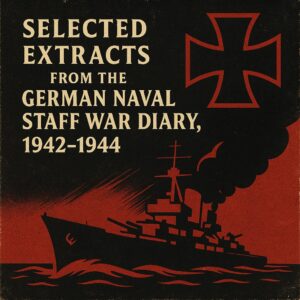


Reviews
There are no reviews yet.